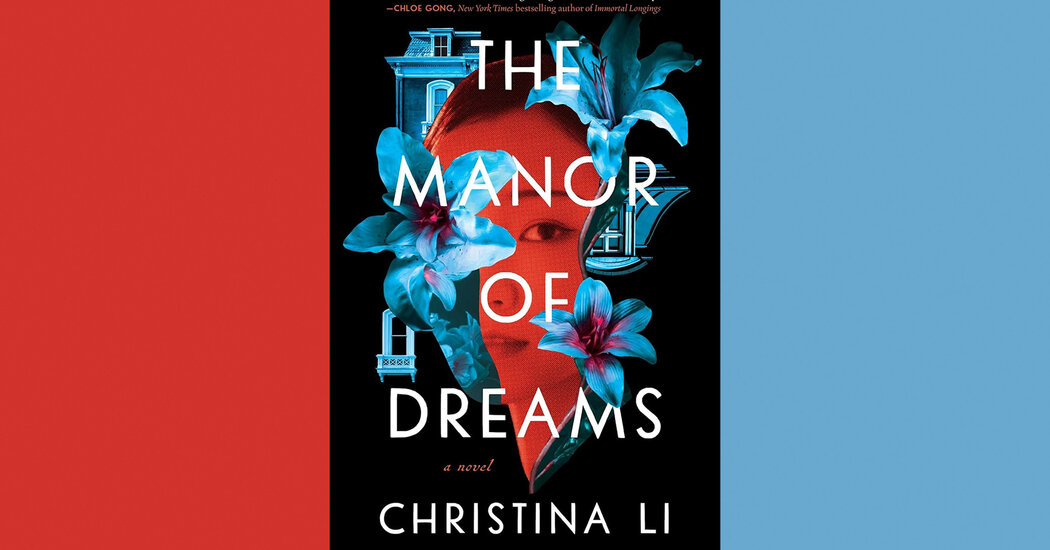THE MANOR OF DREAMS, by Christina Li
The children’s and young adult author Christina Li’s first foray into adult literature, “The Manor of Dreams,” begins with a contested will. It’s 2024, and Vivian Yin, a once-celebrated, Oscar-winning Chinese actress, has died. Her obituaries and tributes are few and brief. After decades spent isolating in her crumbling Los Angeles mansion, Yin Manor, Vivian’s legacy has been forgotten. Her husband is dead, and her daughters and granddaughter are estranged.
The daughters, Lucille and Rennie, are relying on the inheritance of the decaying but still valuable mansion to help them personally and financially. But, while seated at Vivian’s grand dining room table with a lawyer, they learn they will not be the beneficiaries of the estate. Yin Manor has been bequeathed to Elaine Deng, the daughter of the mansion’s longtime housekeeper and gardener.
Immediately suspecting coercion, or something even more sinister, Lucille, Rennie and Lucille’s daughter, Madeline, insist on a week inside Yin Manor to investigate Vivian’s final days and find a lawful claim to the mansion. Elaine, anxious not to lose the property, agrees on two conditions: that she and her daughter, Nora, join them in the house and that, once the week is finished, the Yin family “never contest the will or contact us again.” Rennie and Lucille agree — even though, of course, it is under false pretenses.
“The Manor of Dreams” is ambitious. It’s written in dueling timelines, covers three generations and features an ensemble of disparate characters. It explores two forbidden love stories and includes some malevolent supernatural phenomena. Li uses all of these elements to begin a promising conversation about the corrupting power of money, the realities of the American dream, the profound impact of family and the slow poison of secrecy.
